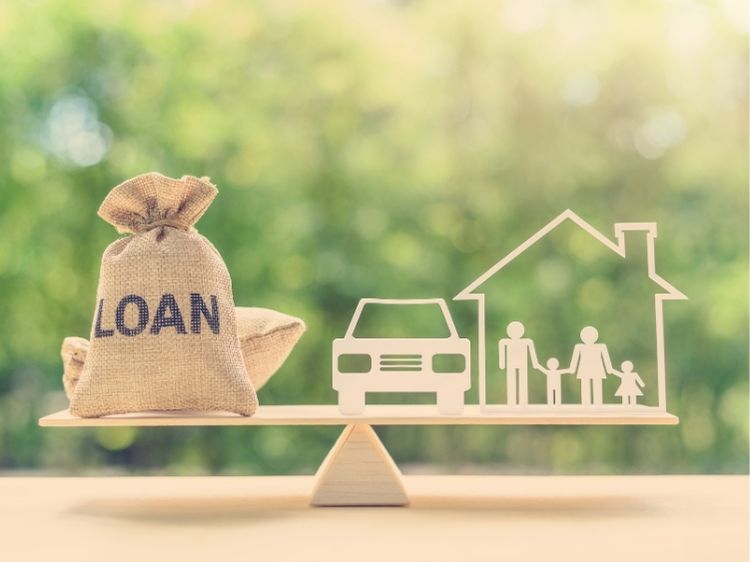In the golden years of life, financial peace of mind is often as important as health and happiness. For many Florida homeowners aged 62 and older, a reverse mortgage can offer the freedom to live comfortably without the burden of monthly mortgage payments. As home values in the Sunshine State continue to rise, the concept of a reverse mortgage Florida is gaining popularity, allowing retirees to convert home equity into usable funds while staying in the comfort of their own homes.
What is a Reverse Mortgage in Florida?
A reverse mortgage in Florida is a unique financial tool specifically designed for older homeowners. Unlike a traditional mortgage, where the borrower makes monthly payments to a lender, a reverse mortgage allows the homeowner to receive payments from the lender. This loan is repaid only when the borrower sells the home, moves out permanently, or passes away. The most common type of reverse mortgage is the Home Equity Conversion Mortgage (HECM), which is insured by the Federal Housing Administration (FHA).
For Florida residents, this option is especially appealing given the state’s high population of retirees and senior citizens. With a reverse mortgage Florida, eligible homeowners can tap into their built-up home equity and use the proceeds for virtually any purpose—be it paying off existing debt, covering healthcare expenses, or simply enhancing their quality of life.
Eligibility and Requirements for Florida Homeowners
To qualify for a reverse mortgage in Florida, the homeowner must be at least 62 years old and reside in the home as their primary residence. The property itself must be in good condition and meet HUD standards. Accepted property types typically include single-family homes, FHA-approved condominiums, and some multi-unit dwellings.
In addition, homeowners must undergo a mandatory counseling session with a HUD-approved counselor. This ensures that they fully understand the terms, responsibilities, and long-term implications of taking out a reverse mortgage. Florida has specific guidelines that mirror federal regulations, but state-level support and resources are also available to guide homeowners through the process.
Why Florida Is a Hotspot for Reverse Mortgages
Florida’s status as a retirement haven makes it an ideal environment for reverse mortgages. With a significant portion of the population entering retirement age, many find themselves house-rich but cash-poor. A reverse mortgage Florida enables these homeowners to unlock their home’s value without sacrificing ownership or downsizing.
Moreover, Florida’s favorable tax laws—such as no state income tax—further enhance the benefits of leveraging home equity. These financial perks, combined with the state’s robust senior services and real estate stability, create a supportive ecosystem for reverse mortgage borrowers.
The climate and lifestyle of Florida also make aging in place an attractive option. Seniors prefer to stay in their homes near familiar surroundings, friends, and medical facilities. A reverse mortgage supports this lifestyle, offering financial independence without requiring a relocation or disruptive life change.
How the Process Works in Florida
The process of obtaining a reverse mortgage Florida begins with an initial consultation and assessment. After determining eligibility, the homeowner proceeds with the counseling requirement, followed by an appraisal of the home to determine its market value.
Once approved, funds from a reverse mortgage can be disbursed in several ways—lump sum, monthly payments, line of credit, or a combination of these options. The choice depends on the borrower’s financial goals and immediate needs.
Importantly, the borrower retains ownership of the home and remains responsible for property taxes, homeowners insurance, and general maintenance. This ensures the property remains in good condition and preserves its value for future repayment.
Understanding the Financial Impact and Responsibilities
Although reverse mortgages offer many advantages, they also come with financial responsibilities that should not be overlooked. Interest accrues on the loan balance over time, and because no monthly payments are made, the balance can grow quickly. However, repayment is typically deferred until the last borrower permanently leaves the home.
In Florida, reverse mortgage borrowers are protected by non-recourse loan provisions. This means the repayment amount will never exceed the home’s value at the time of sale, even if the market fluctuates. This is a significant safety net for both the borrower and their heirs.
Still, homeowners should consider how a reverse mortgage Florida could impact estate planning. Since the home may need to be sold to repay the loan, it’s important to communicate with family members and financial advisors to ensure long-term goals are met.
Common Myths About Reverse Mortgages in Florida
Despite growing interest, many misconceptions still surround the concept of a reverse mortgage in Florida. Some fear losing their homes or assume it’s a last-resort option. In reality, a reverse mortgage is a strategic financial solution that, when used wisely, can enhance retirement income without jeopardizing homeownership.
Another myth is that the bank owns the home. In truth, the homeowner retains full ownership and control, as long as they continue to meet basic obligations. Understanding these nuances helps potential borrowers make informed decisions and avoid costly misunderstandings.
Is a Reverse Mortgage Right for You?
Determining whether a reverse mortgage Florida is the right fit requires a thorough evaluation of individual circumstances. For homeowners who wish to remain in their homes while supplementing their retirement income, it can be a powerful tool. However, it’s essential to weigh the pros and cons, consider alternative options, and consult with trusted financial professionals.
The decision should also factor in future living arrangements, expected health care needs, and the desire to leave an inheritance. When approached with proper planning, a reverse mortgage can serve as a cornerstone in a broader retirement strategy.
Final Thoughts: Embracing Financial Freedom in Florida
For many Florida seniors, a reverse mortgage represents more than just financial relief—it offers peace of mind, independence, and the ability to enjoy retirement on their own terms. As more homeowners explore the benefits of a reverse mortgage Florida, it’s clear that this financial tool is helping shape a new vision of aging with dignity and stability.
By unlocking the value of their homes, retirees can transform equity into opportunity, whether that means traveling, investing in wellness, or simply living without financial worry. In the sunshine and serenity of Florida, a reverse mortgage might just be the key to a brighter, more secure future.



